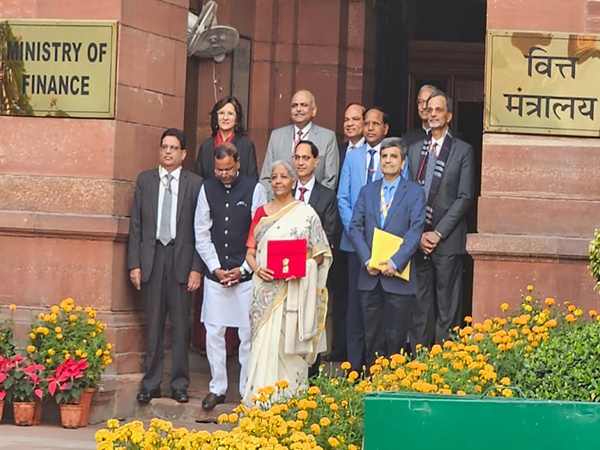The sugar industry on Saturday praised the Union Budget 2025, stating that it will bring relief to the agricultural sector.
To further strengthen agricultural financing, the government has announced enhancing the loan limit under the modified interest subvention (MIS) scheme from Rs 3 lakh to Rs 5 lakh for loans taken through Kisan Credit Card (KCC). The government has introduced the PM Dhan Dhanya Krishi Yojana, a new initiative aimed at improving agricultural conditions in 100 districts that have low productivity, moderate crop intensity, and below-average access to credit.
The Indian Sugar and Bio Energy Manufacturer Association (ISMA) appreciated the significant measures that have been introduced in the agricultural sector in the 2025 Budget
Deepak Ballani, Director General of ISMA said, “The government’s assistance to farmers by issuing Kisan Credit Cards (KCC) and raising the loan cap in tandem with the expanding financial infrastructure ought to bring about welcome relief and increase agricultural activities in the country. ISMA appreciates efforts targeted towards irrigation, because they contribute towards earning more and saving on inefficiencies within the agriculture sector. These measures strengthen our efforts on sustainability combined with economic development within the agricultural sector where sugarcane remains the mainstay of our industry.”
“Additionally, the Dhan Dhanya Krishi Yojana aims at increasing productivity in low productivity districts. This is expected to liberate farmers and ensure fair benefits to all participants in the agricultural sector. As always, there is a supportive attitude from ISMA in these government programs which assist farmers all over India, including those which practice sugarcane farming,” he further added.
Tarun Sawhney, Vice Chairman and Managing Director, Triveni Engineering & Industries Ltd (TEIL) also hailed the Budget. He said, “The Union Budget 2025 reaffirms the Government’s unwavering commitment to creating a ‘Viksit Bharat,’ with a strong focus on Garib, Youth, Annadata, and Nari. The budget has laid the foundation for a more inclusive and sustainable future by strengthening India’s agricultural ecosystem and accelerating the nation’s clean energy transition.”
“The introduction of the Dhan Dhanya Krishi Yojana is a landmark step in recognizing agriculture as the first engine of growth. The upliftment of 100 districts will drive inclusive agricultural growth, benefiting 1.7 crore farmers through improved, better financial access, and enhanced post-harvest infrastructure. With sugarcane being a vital contributor to India’s agrarian economy, such interventions will further empower farmers by enabling sustainable farming practices. Furthermore, the launch of the National Mission on High-Yielding Seeds is also a transformative initiative that will improve crop productivity and resilience. Given the intensity of climate change, this initiative is now more important than ever, ensuring greater food security and income stability for farmers. Enhancing financial support through Kisan Credit Cards (KCC) and boosting agri-based entrepreneurship, particularly in food processing, will create new opportunities for rural communities and bolster value addition in the sector,” he added.
“Water conservation and responsible wastewater management remain crucial for the country, and the extension of the Jal Jeevan Mission till 2028, aiming to achieve 100% coverage of potable tap water connections across rural households is a welcome move. Additionally, the Government plans to sign separate MoUs with states and union territories to ensure the sustainability and efficiency of water service delivery, reinforce its commitment to a water-secure future for all. As a leading player in sugar, ethanol and water management, our Company remains dedicated to advancing these national priorities. With a sharp focus on circular economy principles, we will continue to work alongside farmers, policymakers, and industry partners to build a greener, more self-reliant India,” the Vice Chairman and Managing Director of TEIL concluded.











